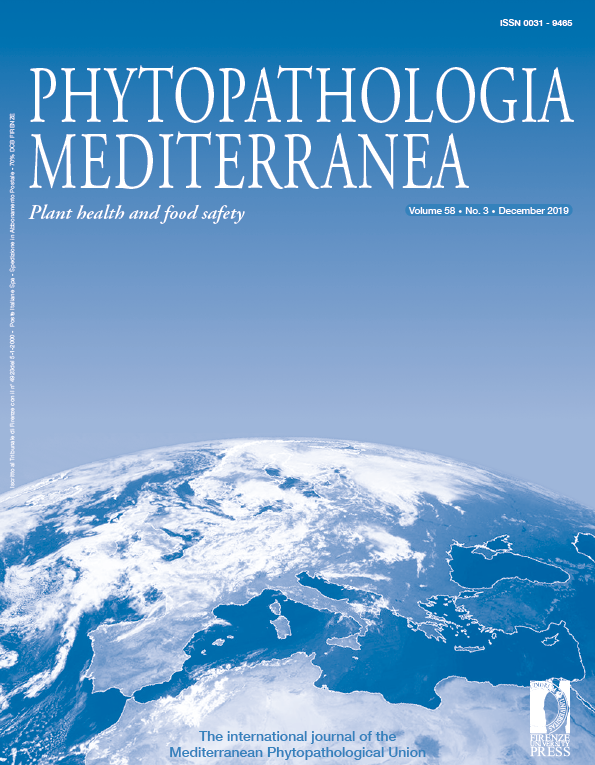Activity of extracts from three tropical plants towards fungi pathogenic to tomato (Solanum lycopersicum): Antifungal activity of plant metabolites
Published 2019-12-30
Keywords
- Euphorbia hirta,
- Oxalis barrelieri,
- Stachytarpheta cayennensis,
- antifungal activity,
- plant growth promotion
How to Cite
Abstract
Antifungal properties were assessed of water and ethanol extracts from the pan-tropical plants Oxalis barrelieri L., Stachytarpheta cayennensis L., and Euphorbia hirta L. against Fusarium oxysporum f. sp. vasinfectum, Alternaria solani Sorauer, and Rhizoctonia solani Kuhn. The plant extracts inhibited fungal growth in vitro at 1.25-20 mg mL-1, and the degrees of inhibition increased in a dose-dependent manner. Ethanol extracts from the plants inhibited fungal growth by 80-100%, while water extracts showed less antifungal activity, with maximum growth inhibition of 62%. Growth inhibition from ethanol extracts was two- to three-fold greater than for water extracts at equivalent concentrations. Antifungal activity of the extracts varied with their content and composition of phenolics, flavonoids, tannins, and alkaloids. In greenhouse experiments, spraying tomato plants (Solanum lycopersicum L.) with ethanol extract from E. hirta at 2.5 mg mL-1 did not cause phytotoxicity, and increased plant size, when compared to untreated plants. Spraying E. hirta ethanol extract on tomato plants infected by R. solani reduced disease severity up to 80%, when compared to non-sprayed plants. These results demonstrate potential of leaf extracts from E. hirta, O. barrelieri, and S. cayennensis as biofungicides for the control of R. solani, A. solani, and F. oxysporum, which are among the most important causal agents of tomato diseases.







